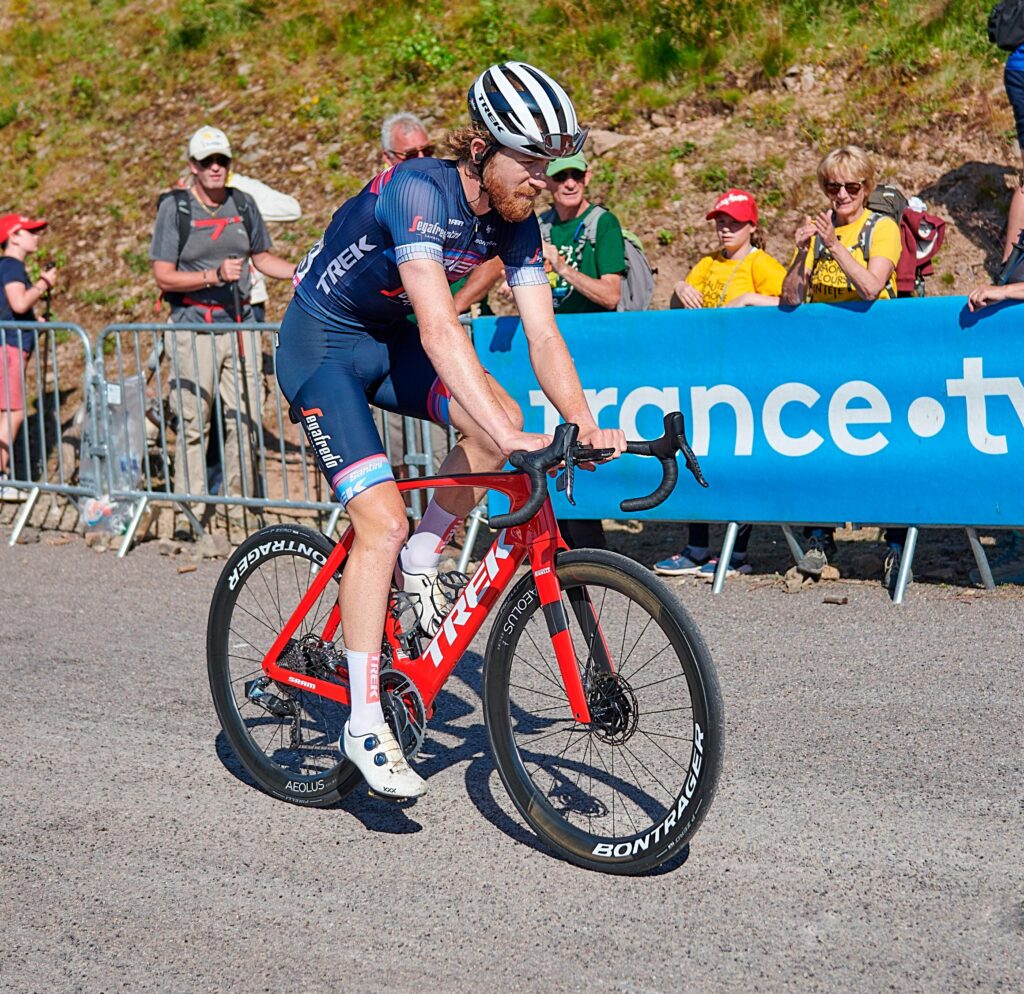In the fiercely competitive world of professional cycling, where athletic prowess often takes center stage, the importance of personality and charisma is sometimes overlooked. However, rising star Quinn Simmons is advocating for a shift in mentality among cyclists, urging them to embrace the role of entertainers as much as that of competitors. Drawing inspiration from legendary cyclist Peter Sagan, who famously blended flair and competitiveness, Simmons shares how Sagan influenced his own aspirations to become a bike racer. In a recent interview, the young American cyclist discussed the need for riders to engage fans and create memorable experiences, arguing that entertainment value can be as crucial as crossing the finish line first. As the cycling community continues to evolve, Simmons’ call for a new breed of cyclist could redefine the sport for generations to come.
Quinn Simmons Advocates for a New Era of Entertaining Cyclists
In a candid conversation, Quinn Simmons emphasized the evolving role of professional cyclists in the modern sports landscape, advocating for riders to embrace the dual identity of being both athletes and entertainers. Drawing inspiration from icons like Peter Sagan, Simmons stated that the excitement generated by engaging personalities on the bike is as crucial to the sport’s appeal as the pursuit of victory. He believes that the way cyclists interact with fans and the media can significantly enhance the sport’s visibility and connection to a wider audience.
Simmons outlined several key areas where cyclists can contribute to this new era of entertainment, including:
- Fan Engagement: Utilizing social media platforms to share insights, experiences, and candid moments from the race.
- Creative Expression: Integrating unique personal styles, both in terms of riding techniques and off-the-bike fashion, to create memorable personas.
- Collaborative Ventures: Partnering with brands and influencers that resonate with cycling culture to foster a vibrant community atmosphere.
He envisions a future where cycling races are not just competitions but multifaceted events that captivate audiences and inspire budding cyclists worldwide. As Simmons champions this shift, his call to action resonates: it’s time for riders to redefine what it means to compete and, in doing so, elevate the entire sport.
The Influence of Peter Sagan on Aspiring Riders
Quinn Simmons, the rising star of professional cycling, openly credits Peter Sagan as a pivotal influence in his journey toward becoming a bike racer. Sagan’s larger-than-life personality and flair for showmanship have redefined the expectations of cyclists, encouraging young athletes to merge their competitive spirit with entertainment. Simmons highlighted that it’s not solely about crossing the finish line first; the modern cyclist must also capture the audience’s imagination. This perspective resonates with many aspiring riders, who are now striving to bring their unique charm and character to the sport, hoping to emulate Sagan’s ability to connect with fans both on and off the bike.
The impact of Sagan’s approach is evident in the burgeoning culture surrounding competitive cycling. Aspiring riders are redefining their training regimens to include elements of performance and charisma, fostering a sense of community among fans and fellow racers. They are focusing on:
- Engaging social media presence: Sharing training snippets, personal stories, and behind-the-scenes glimpses.
- Personality in performance: Incorporating signature moves or styles during races to entertain spectators.
- Community involvement: Actively participating in local events and charity rides, strengthening connections with fans.
This shift is heralding a new era in cycling, where the ability to inspire and entertain holds as much weight as athletic prowess itself, much like Sagan demonstrated throughout his illustrious career.
Balancing Competition and Charisma in Professional Cycling
In recent discussions surrounding the world of professional cycling, Quinn Simmons has sparked a conversation about the need for riders to embrace their role as entertainers, alongside their responsibilities as competitors. Charismatic athletes like Peter Sagan not only excel in races but also capture the hearts of fans, blending athletic prowess with an engaging personality. This duality raises the question: can success on the bike coexist with the necessity to entertain? As cycling grows in popularity, the expectation for riders to maintain a public persona while fiercely competing becomes increasingly significant.
While talent and training are undeniably essential for a cyclist’s success, engagement with fans through social media, charismatic interactions during events, and a willingness to be outspoken may differentiate good riders from great ones. Riders today are not just expected to win; they must also connect emotionally with their audience, creating a more profound interest in the sport. Below are essential traits for cyclists striving to balance competition and charisma:
- Authenticity: Remaining true to oneself while engaging with fans.
- Communication skills: Effectively conveying thoughts and emotions both on and off the bike.
- Creativity: Thinking outside the box to generate unique content and interactions.
- Passion: Demonstrating enthusiasm for cycling that resonates with fans.
Future Outlook
In conclusion, Quinn Simmons’ candid reflections on the influence of Peter Sagan highlight a crucial aspect of modern cycling: the balance between competitiveness and entertainment. As a rising star in the sport, Simmons emphasizes that winning titles is only part of the equation; engaging the audience and captivating fans are equally essential to the sport’s evolution. His call for cyclists to embrace their roles as entertainers serves as a reminder of the dynamic relationship between athletes and their supporters. As the cycling world continues to evolve, aspiring racers like Simmons are poised to shape its future, ensuring that the spirit of competition remains intertwined with the joy of performance. Only time will tell how this philosophy will resonate among the peloton, but one thing is clear: the sport is not just about racing anymore; it’s about creating a spectacle that enthralls and inspires.











